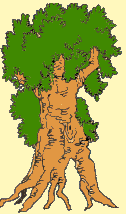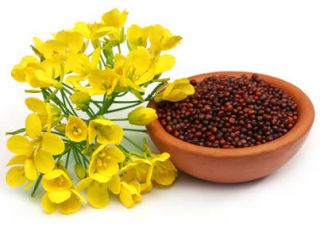
La graine de moutarde et 08 maladies quelle soulage
Originaire d’Europe, d’Asie Centrale et d’Inde, la moutarde (Brassica), noire, blanche ou de Chine, est une plante annuelle touffue de la famille des Brassicacées.La moutarde est un condiment apprécié dans le monde entier et ses feuilles et ses graines offrent de nombreux bienfaits et vertus sur la santé.
Après le sel et le poivre que nous utilisons, la moutarde est l’un des plus vieux condiments et le troisième parmi les plus populaires au monde.Les graines de moutarde sont importantes pour protéger notre santé .Elles sont disponibles en variétés blanches, brunes et noires et sont utilisées partout dans le monde. Les Grecs, les Romains, les Asiatiques et les Africains ont tous exploré le goût des graines de moutarde et les ont intégrés dans leurs cuisines. Les graines de moutarde trouvent aussi leur place dans la Bible et leur premier enregistrement d’utilisation se trouve dans les scripts sanscrits qui remontent à des milliers d’années.Malheureusement, la réputation de la graine de moutarde a récemment diminué en raison de son lien avec la moutarde, qui est elle-même liée à la restauration rapide comme les hamburgers et les hot-dogs. C’est regrettable, car les graines de moutarde présentent de nombreux bienfaits pour la santé. Cet article a pour but de vous faire découvrir cette merveille plante , toutes ces composantes et ces bienfaits sur la santé.
Veuillez nous contacter à http://wa.me//+22967546677
Écrit et édité par DJIMA Rachidatou le 31/03/2022
Prenez rendez-vous avec un spécialiste au
Recherche associée
Comment consommer la graine de moutarde ?
Quels sont les méfaits de la moutarde ?,
Est-ce que la moutarde donne des gaz ?,
Pourquoi la moutarde est forte ?,
Est-ce que la moutarde est bon pour la santé ?,
Est-ce que la moutarde est bonne pour la santé ?,
Pourquoi la moutarde monte au cerveau ?,
Quelle est la moutarde la moins forte ?
La graine de moutarde et 08 maladies quelle soulage : apport par calorie
Veuillez nous contacter à http://wa.me//+22967546677
Cultiver la moutarde pour ses bienfaits
Pour pousser, la moutarde a besoin de soleil. Attention, elle n’apprécie pas les endroits venteux ni les zones trop ombragées. Si vous habitez une région froide, mieux vaut opter pour la moutarde en serre ou sous tunnel plastique.
Le sol doit être compact, fertile, profond, bien drainé mais il est important qu’il reste frais. Ne choisissez pas un terrain trop humide.
Il est tout à fait possible de cultiver la moutarde de Chine dans une jardinière, à condition de l’arroser très régulièrement. Si le temps est bien sec, la montée en graines se fait rapidement.
Moutarde : comment faire le bon choix ?
La moutarde forte (la moutarde de Dijon, par exemple) est sûrement la plus connue ! Cette moutarde très relevée - voire, parfois, piquante ! - accompagne les viandes rouges et blanches, et permet de préparer des sauces de caractère.
La moutarde douce (la moutarde de Meaux, par exemple) est, comme son nom l'indique, plus délicate. Elle se marie bien avec le poisson blanc, les crudités et se prépare volontiers en vinaigrette.
La moutarde à l'ancienne est un grand classique de la cuisine française : granuleuse, elle accompagne le lapin, le gibier, l'andouillette, les brochettes au barbecue...
La moutarde aromatisée (à l'estragon, au basilic, aux noix, au miel...) quant à elle, se décline en plus d'une centaine de parfums ! Elle est la préférée de l'apéritif, et peut (tout simplement) se laisser tartiner sur un toast.
A lire aussi:
Les vertus de l'ortie sur la santé
La moutarde en cuisine pour ses bienfaits
En salade, les très jeunes feuilles de moutarde sont délicieuses.
Quand elles mûrissent, elles font aussi un excellent légume nutritif, cuit à la vapeur ou sauté.
En condiment, la moutarde accompagne viandes et légumes, et elle ajoute un peu de piquant aux vinaigrettes, sauces et mayonnaises.
Apports nutritionnels de la moutarde
Les feuilles de moutarde sont riches en protéines complètes, provitamine A, vitamines B et C. Elles sont également largement bien pourvues en sels minéraux.
Riche en composés anticancéreux
Les graines de moutarde sont étonnamment riches en phytonutriments appelés isothiocyanates, qui ont été largement étudiés pour leurs bienfaits anticancéreux. Par exemple, une étude publiée dans le Journal international de recherche sur les vitamines et la nutrition en 2002 a révélé que les isothiocyanates peuvent inhiber la mitose et stimuler l’apoptose (la mort cellulaire) dans les cellules tumorales humaines.
Une autre étude publiée dans Carcinogenesis en 2010 a révélé que de la poudre de graines de moutarde riche d’un groupe particulièrement bénéfique d’isothiocyanates appelé isothiocyanates d’allyle (AITC), peut inhiber de manière significative la croissance du cancer de la vessie.
Ces résultats impressionnants suggèrent qu’ajouter davantage de graines de moutarde à notre régime alimentaire pourrait prévenir, voire traiter, le développement du cancer.
Contient du sélénium régulant la thyroïde
Une cuillère à soupe de graines de moutarde contient environ 21% de l’apport journalier recommandé en sélénium, un oligo-élément essentiel.
En plus d’être un antioxydant qui aide à éliminer les radicaux libres responsables de la maladie, le sélénium est également responsable de la transformation de l’hormone thyroïdienne lente T4 en une T3 plus active.
En effet, le sélénium fonctionne réellement avec l’iode pour aider à maintenir la fonction thyroïdienne.
Puisqu’une thyroïde dysfonctionnelle peut causer des ravages dans le corps (y compris nous empêcher de perdre du poids), il est toujours important de consommer des aliments riches en sélénium et en iode.
A lire aussi:
Contient un composé anti-inflammatoire : curcumine
Vous êtes-vous déjà demandé pourquoi la moutarde et les graines qui la composent sont généralement jaunes ? C’est parce qu’ils regorgent de curcuminoïdes, un groupe de pigments liposolubles que l’on trouve également dans le curcuma, le gingembre et d’autres herbes et épices de couleur jaune.
Les curcuminoïdes, dont le plus connu est la curcumine, sont des antioxydants qui présentent des bienfaits notables en matière de lutte contre le cancer.
Cependant, ce sont aussi des anti-inflammatoires puissants.
Veuillez nous contacter à http://wa.me//+22967546677
Bonne source de vitamines et de minéraux
Comme la plupart des graines, les graines de moutarde constituent une bonne source de nutriments variés, notamment le calcium, le fer, le magnésium, le phosphore, le potassium, le zinc et le manganèse. Deux cuillères à soupe nous fournissent 6% de notre apport quotidien recommandé en acides gras oméga-3, les acides polyinsaturés bénéfiques nécessaires à la construction des membranes cellulaires dans le cerveau.
Les graines de moutarde peuvent être consommées crues, mais leur goût robuste les rend particulièrement adaptées aux repas riches et cuisinés tels que les currys et les plats à base de riz.
Comment faire votre propre moutarde
Voici une recette de moutarde de base qui peut être adaptée selon vos goûts, en y ajoutant d’autres herbes ou épices.
Recette de base de la moutarde
- 1/2 tasse (125 ml) de poudre de moutarde
- 1/2 tasse (125 ml) d’eau
- Sel de mer selon votre convenance
- Facultatif : persil frais, haché
- Facultatif : basilic frais, haché
- Facultatif : zeste de citron jaune ou vert
- Facultatif : 1 à 2 cuillères à soupe de vinaigre de votre choix
Dans un bol, mélangez la poudre de moutarde et l’eau jusqu’à obtenir un mélange homogène. Ajoutez du persil, du basilic, du zeste de citron jaune ou vert et/ou du vinaigre, si vous le souhaitez. Laissez reposer la moutarde 15 minutes avant de l’utiliser.
Comment stocker les graines
Il est important de garder les graines de moutarde dans un endroit sec et frais.
Gardez-les dans des bocaux hermétiques.
Les pots doivent être entièrement secs.
Les graines entières de moutarde peuvent être utilisées jusqu’à un an et celles farinées ou moulues peuvent durer jusqu’à six mois.
Veuillez nous contacter à http://wa.me//+22967546677
La graine de moutarde et 08 maladies quelle soulage:bienfait médicinale
Ce condiment préparé à partir des graines de moutarde est aussi utilisé pour les remèdes de grand-mères. Voici ses bienfaits santé.
Veuillez nous contacter à http://wa.me//+22967546677
La moutarde et ses bienfaits sur la santé
Très riche en vitamine C, la moutarde est particulièrement indiquée dans le cadre de cures tonifiantes et dépuratives.
Les feuilles de moutarde sont une excellente source de bêta-carotène, qui est transformé en vitamine A dans le corps. La vitamine A participe à plusieurs fonctions de l’organisme et favorise, entre autres, la croissance des os et des dents. Elle contribue à maintenir la peau en bonne santé et protège contre les infections.
La moutarde contient des antioxydants qui réduisent les dommages causés par les radicaux libres dans le corps. Elle permet de lutter contre l’apparition de maladies cardiovasculaires, de certains cancers et d’autres maladies liées au vieillissement des cellules.
La moutarde lutte efficacement contre les troubles digestifs. Tonifiante, elle stimule le travail de l’estomac et des intestins.
En cataplasmes, la moutarde lutte contre les maladies des voies respiratoires, décongestionne les bronches et soulage les affections rhumatismales douloureuses et les maux de tête.
Le bain à la moutarde (un demi pot de moutarde dans l’eau du bain) est excellent contre les coups de froid. Il stimule l’ensemble de l’organisme
La moutarde soigne le rhume
Le cataplasme à base de farine de moutarde noire (également appelé sinapisme Rigollot) aide à soulager les affections respiratoires hivernales (rhume, toux, bronchite simple). Il stimule la circulation veineuse locale et provoque un afflux de chaleur qui favorise la décongestion des voies aériennes.
Pour ce faire, vous pouvez acheter des graines de moutarde et les moudre pour faire une farine ou directement acheter de la farine de moutarde noire. Dans un bol, mélangez de la poudre de moutarde noire avec de l’eau pour former une pâte. Enveloppez le mélange dans un linge et déposez le à la hauteur des poumons, sur le dos ou le thorax, pendant 5 à 10 minutes 1 à 2 fois par jour. Attention : le cataplasme ne convient pas aux enfants en bas âge ni aux peaux délicates ou fragiles.
La moutarde favorise la digestion
La moutarde favorise la digestion. Le condiment stimule la production de suc gastrique et de la salive, cette dernière aide à fluidifier le système digestif. Consommée lors des repas, la moutarde permet de lutter contre la constipation, mais aussi contre l’aérophagie. En revanche, il vaut mieux ne pas abuser de la moutarde si vous souffrez de brûlures d’estomac ou d’ulcère.
La moutarde est anticancérigène
La moutarde aurait des propriétés anticancérigènes, comme le corossol, fruit du corossolier. Les graines de moutarde contiennent de l’isothiocyanate d’allyle (AITC). Or, ce dernier "inhibe fortement le cancer de la vessie", comme l’affirme une étude publiée en 2010 dans la revue scientifique Carcinogenesis. Par ailleurs, l’AITC présent dans les graines de moutarde bloque les composés cancérigènes, présents dans certaines viandes transformées.
La moutarde est légère et riche en nutriments
La moutarde est pauvre en graisses : pour 100 grammes, elle contient 66 calories, et 4 grammes de lipides. Elle est riche en calcium, en phosphore, en potassium ou encore en vitamine A et C. La moutarde peut donc être associée à un régime dans le cadre d’une perte de poids.
La moutarde soulage les maux de dos
La moutarde agit efficacement sur les douleurs musculaires et les raideurs articulaires. Il est conseillé de réaliser un cataplasme avec une cuillerée à soupe de moutarde et 20 cl d’eau tiède. Mélangez la pâte. Enveloppez la mixture dans une gaze, et posez dix minutes le soin sur une zone à traiter, préalablement hydratée. Si vous sentez une brûlure ou une irritation, retirez le immédiatement.
La moutarde donne de l’énergie
Grâce à sa teneur en vitamine C, la moutarde aide à renforcer ses défenses immunitaires et favorise l’absorption de fer. Elle contient de la vitamine B2, B6, B9, mais aussi du calcium du magnésium. Des nutriments connus pour apporter de l'énergie à l'organisme.
Veuillez nous contacter à http://wa.me//+22967546677
La moutarde réchauffe
L’huile de graines de moutarde active la circulation sanguine et entraîne un afflux de chaleur dans tout le corps. En massant ses pieds et ses mains avec ces quelques gouttes d’huile, le corps se réchauffera. La moutarde est donc une parfaite alliée pour passer l’hiver au chaud. Dans le bain, il est aussi possible d’y verser une cuillerée à café de graines de moutarde broyées.
La moutarde soulage les maux de gorge
Ce remède à la moutarde est une astuce de grand-mère redoutable quand on a la gorge irritée. Mélangez une cuillère à soupe de moutarde, une cuillère à soupe de sel, une cuillère à soupe de miel et enfin le jus de la moitié d’un citron et une demi-tasse d’eau bouillante. Laissez refroidir 10 minutes. Puis, gargarisez-le.
Veuillez nous contacter à http://wa.me//+22967546677
Écrit et édité par DJIMA Rachidatou le 31/03/2022
Prenez rendez-vous avec un spécialiste au
Découvrez quelques conseils sur l'utilisation de la graine moutarde
Comment consommer la graine de moutarde ? Quels sont les méfaits de la moutarde ? Est-ce que la moutarde donne des gaz ? Pourquoi la moutarde est forte ? Est-ce que la moutarde est bon pour la santé ? Est-ce que la moutarde est bonne pour la santé ? Pourquoi la moutarde monte au cerveau ? Quelle est la moutarde la moins forte ?
Ajouter un commentaire























